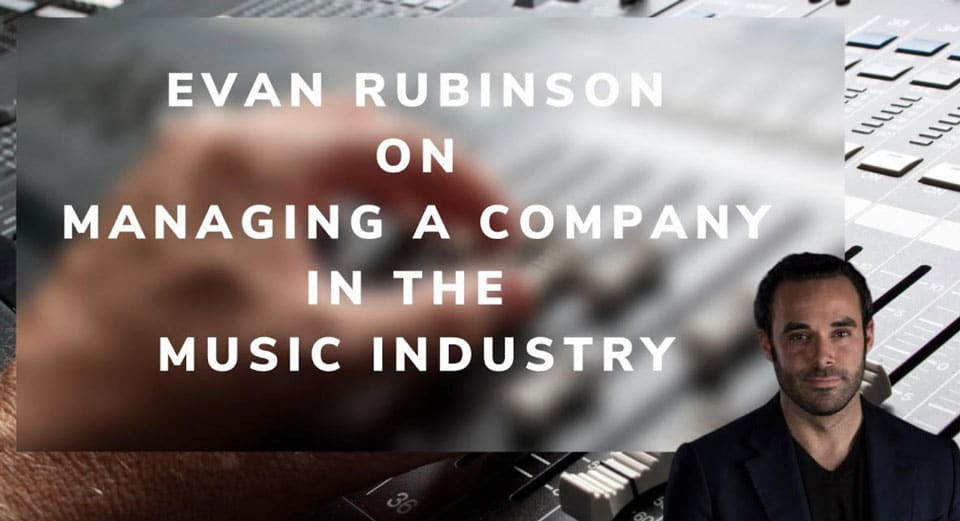Evan Rubinson on Managing a Company in the Music Industry

The music industry is unique. Succeeding in the space requires a diligent work ethic, a double dose of creativity, and the right mix of business acumen and emotional intelligence, according to Evan Rubinson, the founder and CEO of ERA Music Brands.
As the former leader of internationally recognized brands including Dean Guitars, Luna Guitars, and ddrum Percussion, Rubinson has a deep understanding of the industry.
Musicians are known to be a paradox. By stereotype, they’re both highly passionate, yet also numbers minded. In reality, they operate like most consumers, buying on a mix of emotional connection and perceived value, Evan Rubinson said.
That’s why it’s essential for any company in the industry to perceptively connect with consumers, especially newer consumers searching for an entry into playing or performing.
“Ukuleles were definitely a profit center for my previous company, Luna Guitarss, which I still own 50% of,” Rubinson shared. “Luna did a line of ukuleles and travel-sized acoustic guitars, and it became the most profitable series at our company. There’s a lot of money in ukuleles and a lot of money in acoustic guitars, if done right.”
“But even if it was a loss leader, I would still be very passionate about offering those products because of how it helps to develop the market and create a positive relationship with the consumer. When someone falls in love with an instrument, they become a long-term customer for the brand. From beginning with an inexpensive ukulele or acoustic guitar, they often want to transition to more expensive instruments and full-size guitars. Luckily, those gateway lines are a profit center, but even if they weren’t, they would still be a key factor in developing our business and connecting with customers.”
When it comes to business, Evan Rubinson offers the kind of clear-eyed analysis one would expect of a former investment banker with a Duke University degree. But if his move from Wall Street skyscrapers to Broadway honky-tonks required any adjustment, it was the kind that isn’t taught in business school.
“I would say in a nutshell, getting finance and real estate deals done tends to be a little easier than doing deals in the music industry,” Evan Rubinson said. “People in fields like finance and real estate usually have a firm understanding of the value of their companies and the state of the market. They tend to be pretty plugged into that aspect of things. But people in the music industry tend to be a little bit more inelastic. You meet folks who say, ‘Look, I’ve had this company for many, many years. My father had this for many, many years. I’m not giving it up for anything less than this number.’ And so it comes down to the question of: Do you want to overpay for a company or do you want to wait for them to change their mind over the next few months?”
He compared the behavior of music businesses to that of musicians themselves. In both cases, appealing to the emotional part of the brain is the key to establishing trust and building the relationships necessary to make things happen.
Relying on soft skills, kindness, and understanding probably goes further in the music business world than in the domain of stock traders. But mastering the human element of business pays dividends at every level across every sector, Evan Rubinson said.
“We all like to think that we’re emotionless, rational beings that make logical decisions at every turn. But if you’re going to be successful in this business, you need to understand the human psychology that goes along with buying instruments — or anything, really,” he explained. “You need to offer something that people want, and you don’t get to decide whether they should want it or not. That’s up to them.”
Learning to account for the expectations of your target audience, whether it’s a corporation, a small business owner, or a street-level consumer, is an excellent way to build relationships, Rubinson said.
“With my previous company, just as with any established brands, you’re able to do a little bit more with them because they already mean something to people in the marketplace and they already have an accepted audience,” he said.
“People already know what they’re going to get if they buy an electric guitar from one of my other companies. But when you’re starting up a new company, you have to take into consideration that aspect of behavioral psychology and human psychology. You have to think about where you and your partners are going to get the most bang for your buck in the marketplace and where you are going to be able to really integrate with people who hopefully will participate in that ecosystem for years to come as more and more products come out.”
Have you read?
Developing a Business Coalition to Bolster Your Local Community by Jane Marsh.
Accelerating energy transition with human centricity by Dr. Lance Mortlock.
4 Things Investors Look for in Company Leaders by Alexander Dillon.
What CEOs Need to Know About Leveraging Webinars for Marketing.
Add CEOWORLD magazine to your Google News feed.
Follow CEOWORLD magazine headlines on: Google News, LinkedIn, Twitter, and Facebook.
This report/news/ranking/statistics has been prepared only for general guidance on matters of interest and does not constitute professional advice. You should not act upon the information contained in this publication without obtaining specific professional advice. No representation or warranty (express or implied) is given as to the accuracy or completeness of the information contained in this publication, and, to the extent permitted by law, CEOWORLD magazine does not accept or assume any liability, responsibility or duty of care for any consequences of you or anyone else acting, or refraining to act, in reliance on the information contained in this publication or for any decision based on it.
Copyright 2024 The CEOWORLD magazine. All rights reserved. This material (and any extract from it) must not be copied, redistributed or placed on any website, without CEOWORLD magazine' prior written consent. For media queries, please contact: info@ceoworld.biz
SUBSCRIBE NEWSLETTER








